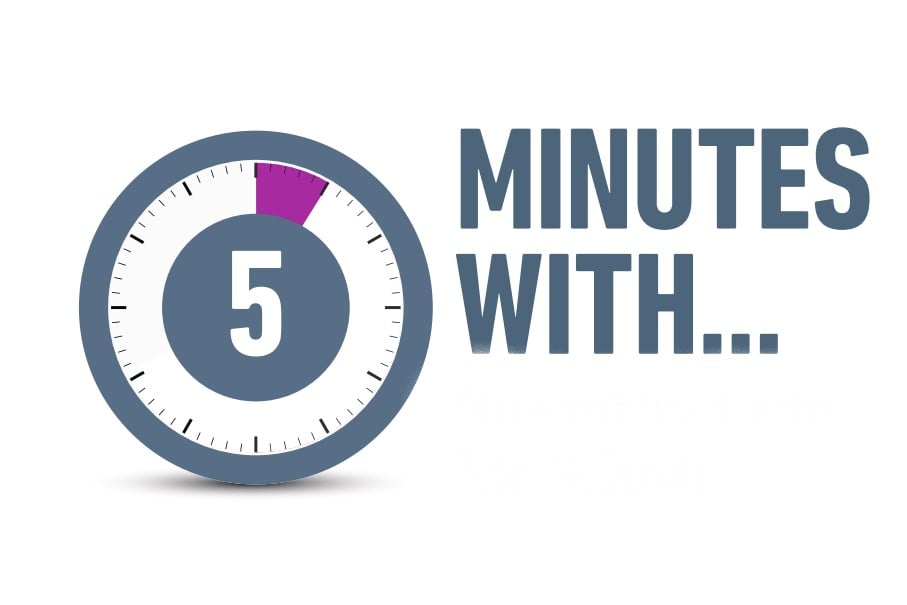In this latest '5 minutes with' interview, Keyloop's chief alliances officer Megan Harvey talks with AM contributor Tom Seymour about the new way it is working with suppliers and dealerships as part of its new 'partner ecosystem'. This comes after fears were raised by some industry figures that higher costs for partners would be passed on ultimately to the car dealers in those partners' client base.
Dealerships often work with third-party software suppliers (partners) for certain technology systems and these need to integrate seamlessly with the dealer management system (DMS). Can you talk about why Keyloop is changing the way it works with partners?
We’re launching the new partner ecosystem in honour of our customers and their experience.
But we’re also doing this to make sure the partner applications that are connecting to our DMS are performing optimally. We operate in over 90 countries and we know we can’t do everything everywhere.
Partners are hugely important to us as they help to fill out the gaps for solutions that we have from country to country. We’re bringing partners into the fold so that we can really work together. I think it’s very exciting and a key part of Keyloop’s transformation.
What was the previous set-up between Keyloop and partners?
Previously a partner would come to Keyloop and there would be a review of their application.
We would then work with that partner to figure out all the Application Programming Interfaces (APIs -a set of functions that allows applications to access data and interact with external software components or operating systems) they would need to make sure their applications function correctly.
Each one of those APIs would have a price. Sometimes partners would start to architect around using all the APIs they needed because they didn’t want to pay higher fees.
This then led to a sub-optimal experience for the dealership.
What are the payment terms and the set-up for the new partner ecosystem?
The way things work now is that the Keyloop API library is completely open. We still work with partners to understand their applications and make sure it’s safe and secure and to map out the APIs they need to make their application function in the best way possible.
Now it’s a 20% revenue share for the price the partner sells their application for to dealers. When you look at the maths in terms of how much this is costing compared with the old model, it’s either neutral or in some cases lower.
There are specific edge cases where it’s 30% of revenue share.
Those are very few and far between. Apple is a 30% revenue share. Salesforce has a range up to 25%.
We think it’s right in the sweet spot for what is in the rest of the technology industry.
Can you address some of the previous reporting that there has been uproar between Keyloop and suppliers on the launch of this new partner ecosystem?
The thing I found to be incorrect with previous reporting is that we were keeping our go to market model and then layering something else on top of that. It’s not the case. We’re completely leaving the per API charge aside. That is now over. There are a couple of reasons.
Standardisation is one of them.
The other is that it makes things much more transparent with our partners.
It removes the cost barriers that were preventing partners from using multiple Keyloop APIs. The end result was that dealership customers were suffering as a result. There were a lot of suboptimal workflows and scenarios where there was double keying. When you take the per API cost away, you can create higher quality integrations for dealer customers.
That’s one of the driving forces behind this. Not only do we want car buyers to have a great experience, we want automotive retailers to have a great experience with the technology they’re using every day too.
The changes to the partner ecosystem enables that to happen.
Why did you decide to move to this revenue share model compared to what existed before?
This is very standard in the technology industry and it’s something that is used by Google, Amazon and all the tech companies. It’s not something that Keyloop has invented.
What has been the reaction from Keyloop’s dealer customers?
We’ve canvassed our large and small customers. They’re completely fine with it. They’re not concerned at all.
What’s your response to concerns that price increases as a result of the new model will be passed on to dealers?
To be very clear the switch to this new model is actually cost neutral when looking across the partner ecosystem.
Why do you think there appears to have been confusion about the changes to the partner ecosystem?
I don’t feel like what has been published previously on this is a correct representation of our partner ecosystem. We’re going through a whole process of signing new agreements with partners. We have a few remaining agreements to bring over the line, but the majority of the partners were completely fine and are moving forward with the new model.
What’s the roadmap for rolling out the new partner ecosystem with new contracts and agreements?
The majority of our partners will be on new agreements before the end of May. We’ll just be moving forward from there. Any new customers that partners transact with will be on the new revenue share model from that point forward.
How did you communicate with partners about the changes?
All the partners knew about this so they would not have been blindsided by the changes. We have a clause in our agreements where we need to alert partners to any changes within a specific amount of time.
We did that and now we’re moving over to the new model. It’s not like there’s a crazy gauntlet that will drop though. There are a few partners that have more complex applications landscapes and that may take us a bit longer to work out with them into June.
But it doesn’t benefit us to railroad this process.
What will the impact be to dealers that are working with suppliers that are part of the new partner ecosystem?
It’s business as usual. Existing customers won’t see anything. It will just be seamless.
There will be no degradation of service for new customers either. In fact, the API functionality should be better as we continue to invest in that portion of our business.
What has the pushback been like from partners that have voiced concerns?
We are making a large investment in modernising our technology. We’re approaching this in a responsible and transparent way. It’s fair and the same for all our partners compared to the little pockets of inequity we were seeing before. I’ve done this before and I know what good looks like at previous roles at Google and Looker.
Keyloop is in a time of transformation. Interestingly I have had meetings with partners where I’ve heard the phrase “this isn’t the way we do things” or “you can’t change the partner model”. I always ask though, have you actually run the figures on this? Let’s take the emotion out of it and look at the numbers. Once we do that, they get it and there’s no concern.
Have any partners refused to sign to the new terms?
We’ve had no partners that have refused to sign new agreements. If that were to happen we’d have to sit down and work through the customer base and what we would do there.
Every partner is working with us to figure out the cost modelling and how we can work to ensure mutual success.
What steps is Keyloop taking to further modernise the business for the future?
We’re investing a huge amount of money on developing new technologies.
The move to open up the API library to all our partners is critically important to ensure there are modern security standards. We’ve already seen in the industry there have been high profile cyber crime attacks. We’re really pushing all our partners to use APIs in an optimal way. Not only to get data from the DMS but also to give it back.
There’s a huge amount of work going on behind the scenes to expand the breadth and depth of APIs that we have.


















Login to comment
Comments
No comments have been made yet.